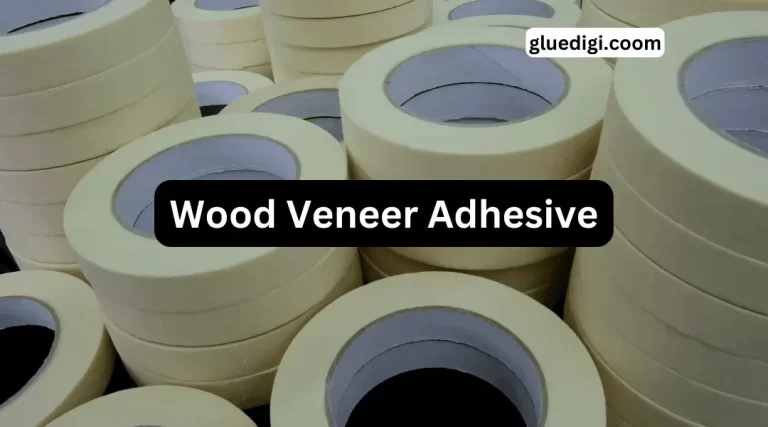Epoxy adhesive is a type of bonding agent that is widely used in construction, automotive, and other industries. It is a two-part adhesive that consists of a resin and a hardener. When these two components are mixed together, they undergo a chemical reaction that results in a strong and durable bond.
Epoxy adhesive is known for its versatility and ability to bond to a wide range of materials, including metals, plastics, ceramics, and wood. The use of epoxy adhesive has become increasingly popular in recent years due to its many advantages over other types of adhesives.
For example, it has a high strength-to-weight ratio, excellent resistance to water and chemicals, and can be used in a variety of temperatures. Additionally, epoxy adhesive can fill gaps and cracks, making it ideal for bonding uneven surfaces.
However, as with any product, there are also some disadvantages to using epoxy adhesive. It can be expensive, difficult to work with, and can emit harmful fumes during the curing process. In this article, we will explore the uses, pros, and cons of epoxy adhesive in more detail.
What is Epoxy Adhesive?
The substance commonly referred to as epoxy has been developed as a type of bonding agent that can be employed in a variety of industrial and household applications. Epoxy adhesive types vary in terms of their composition, curing time, and viscosity, but they all share certain properties that make them desirable for use in bonding applications.
Epoxy adhesives have excellent adhesion to a wide range of substrates, including metals, plastics, ceramics, and composites. Additionally, they have high mechanical strength and resistance to heat, chemicals, and moisture. These properties make epoxy adhesive a popular choice for applications such as construction, automotive, and electronics.
The advantages of epoxy adhesive include its versatility, durability, and ability to form strong, permanent bonds.
Advantages of Epoxy Adhesive
One notable benefit of epoxy adhesive is its exceptional durability and strength, making it a popular choice for a variety of applications in industries ranging from automotive to construction. The benefits of using epoxy adhesive include:
-
Excellent bonding capabilities: Epoxy adhesive can bond a wide range of materials, including metals, plastics, and ceramics, making it a versatile adhesive for different applications.
-
High resistance to heat and chemicals: Epoxy adhesive is resistant to high temperatures and chemicals, making it ideal for use in harsh environments.
-
Low shrinkage and expansion: Unlike other adhesives, epoxy adhesive has low shrinkage and expansion, ensuring that the bond remains intact over time.
-
Easy to apply: Epoxy adhesive is easy to apply, requiring minimal preparation and cleanup.
With these benefits, it’s no wonder why epoxy adhesive is a popular choice for many industries.
However, despite its advantages, there are also some disadvantages to using this type of adhesive.
Disadvantages of Epoxy Adhesive
While epoxy adhesive is a popular choice for its exceptional durability and versatility, it is important to consider its limitations and drawbacks.
One major concern with epoxy adhesive is its toxicity. The fumes can be harmful to breathe in and the adhesive itself can cause skin irritation.
Additionally, epoxy adhesive has bonding limitations. It is not suitable for bonding certain materials such as polyethylene, polypropylene, and Teflon. It also may not bond well in high humidity or extreme temperatures.
Despite these disadvantages, epoxy adhesive is still widely used in construction for its strong bonding capabilities.
Uses of Epoxy Adhesive in Construction
Epoxy adhesive has found significant applications in the construction industry owing to its remarkable bonding properties and resilience against harsh environmental conditions.
In woodworking, epoxy adhesive is used to bond joints in furniture and flooring, providing a strong and durable hold.
In the marine industry, it is used to repair boats and ships, as it can withstand exposure to saltwater and other corrosive elements.
The adhesive is also commonly used in the construction of bridges, tunnels, and other infrastructure projects, as it can help to reinforce weak concrete and steel.
Despite its numerous advantages, epoxy adhesive does have some disadvantages, such as its high cost and potential health hazards.
However, for many construction projects, the benefits of using epoxy adhesive outweigh the drawbacks.
In the next section, we will explore the uses of epoxy adhesive in the automotive industry.
Uses of Epoxy Adhesive in Automotive Industry
The automotive industry has benefited greatly from the remarkable bonding properties and resilience of epoxy adhesive, leading to significant advancements in vehicle safety and performance.
Automotive bonding using epoxy adhesive has been utilized in a range of applications, from repairing small damages to bonding large structural parts of vehicles. The adhesive is used to attach various components, such as spoilers, fenders, and bumpers, to cars, providing a strong and durable bond.
Epoxy adhesive is also used to strengthen and repair engine parts such as cylinder heads, engine blocks, and exhaust systems. It ensures tighter fits that prevent leakage, reducing the likelihood of engine failure. Additionally, it serves as an excellent alternative to traditional welding and riveting methods, which can cause distortion or damage to the metal.
Epoxy adhesive is also preferred due to its lightweight nature, which reduces overall vehicle weight, improving fuel efficiency and reducing carbon emissions. However, it is essential to note that proper safety precautions must be taken when working with epoxy adhesive, as it can be harmful if inhaled or ingested.
With that in mind, it is crucial to follow safety guidelines and protective measures when working with the adhesive.
Safety Precautions
Ensuring proper safety precautions when working with epoxy adhesive is of utmost importance, as the potential harm caused by the adhesive, if not handled with care, could lead to severe and irreversible consequences.
Safety measures should be taken seriously and adhered to strictly to avoid accidents and health hazards.
Epoxy adhesive can cause skin and eye irritation, respiratory problems, and even allergic reactions. Therefore, it is important to wear protective gear such as gloves, goggles, and a respirator when handling the adhesive.
Additionally, it is essential to work in a well-ventilated area to avoid inhaling the fumes.
It is also important to read and follow the instructions on the product label carefully.
Any spills should be cleaned up immediately, and the adhesive should be stored in a safe place away from children and pets.
In conclusion, taking safety measures seriously is crucial when working with epoxy adhesive to avoid any potential harm or health hazards.
Conclusion
Proper adherence to safety precautions is integral to maintaining a safe and hazard-free environment when working with epoxy. Despite the benefits of using epoxy, such as its strong bonding ability and resistance to water and heat, it can also be hazardous if not handled correctly. It is important to wear protective gear, work in a well-ventilated area, and avoid skin contact with the adhesive.
Compared to other adhesives, epoxy has a longer curing time and requires precise mixing of its components. However, its strength and durability make it a popular choice for various applications, such as in construction, automotive, and aerospace industries. It is important to weigh the pros and cons of using epoxy and to prioritize safety when working with this adhesive.
Conclusion
Epoxy adhesive is a type of industrial-strength glue that is widely used in construction and automotive industries. It is a two-part adhesive that consists of a resin and a hardener. When mixed together, it creates a strong bond that is resistant to water, chemicals, and temperature changes.
The advantages of epoxy adhesive include its high strength, durability, and versatility. It can be used to bond a wide range of materials, from metals and plastics to wood and concrete. However, there are also some disadvantages to using epoxy adhesive. It can be difficult to work with, as it requires precise measurements and mixing. It can also be toxic if not handled properly, and can cause skin and eye irritation. In addition, it can be expensive compared to other types of adhesive.
In construction, epoxy adhesive is commonly used for bonding concrete, fixing cracks in walls, and securing bolts and anchors. In the automotive industry, it is used for repairing and bonding parts, and for sealing and protecting surfaces from corrosion.
In conclusion, epoxy adhesive is a versatile and powerful adhesive that offers many benefits in industrial applications. While it has some drawbacks, its high strength and durability make it a valuable tool for construction and automotive professionals. Whether bonding metal, concrete, or plastic, epoxy adhesive is a reliable and effective solution that can withstand even the toughest conditions.



